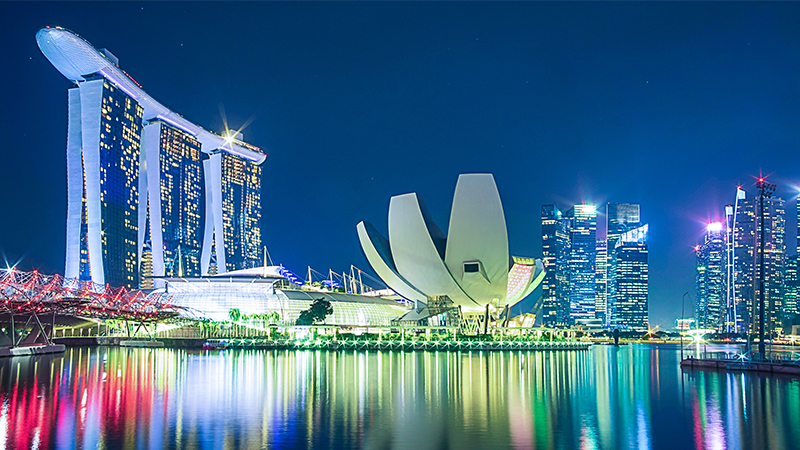The perception that if you’re an expat living in Singapore, you’re on a big expat package with a massive house and garden, education allowance, housing, car and travel budget has hopefully faded. The situation with salaries in Singapore has been changing over the past two decades. Today, most expats are on local contracts. That means they have to pay for the likes of rent and school fees out of a fixed salary.

Then and now
Twenty years ago, being an expat was seen as a quick way to get rich fast. Most employees received full compensation and a benefits packages that covered everything from housing, schools and cars, to tax equalisation, home leave and even cold-weather clothing allowances! While some expats are still fortunate to be living on full packages, most of us don’t have access to those extras.
Industry research shows that “localising” expatriates has been the dominant compensation approach in Singapore, Hong Kong and Shanghai since 2004, in contrast to the predominantly full-package approach of 20 years ago. Localisation describes the company practice of replacing an expat compensation package with something comparable to that offered to locals. It includes reducing (or eliminating altogether) base salary, incentives, allowances, social security and retirement plans. Localised expats are viewed and treated like local employees and offered few or no special benefits in recognition of their “special” status as foreigners.
This change means that more expat families are relocating to Singapore, or remaining here, on local terms and conditions. And they’re forgoing many of the benefits and allowances they once might have received.
Why do expats agree to localise?
For many, it’s a deliberate decision taken in the best interests of the family, especially when faced with a company policy that requires the localisation of an expat who wishes to stay on in Singapore at the end of an assignment contract.
Localisation often makes sense for families who appreciate Singapore as a safe environment to raise children, and a convenient base for expats in a regional role requiring constant business travel. Others have no choice. As the international labour market hots up, and the need for international work experience becomes essential for “lifetime employability” and “external marketability”, many expats and their families are here on local terms because one or both spouses need Singapore or Asia on their CV.
The norm rather than the exception
Not surprisingly, more than three-quarters of companies globally (including those with Singapore subsidiary offices) have some form of localisation policy.
But this doesn’t mean that all expats go willingly into localisation, or that companies necessarily reap the benefits. Localisation has many unforeseen opportunity costs for companies. The biggest of these is the loss of talent to competitors. Localised expats are free to job-hop and look for better employment deals, because of reduced financial ties binding them to their employers.
To counter the avalanche of lost talent and employee resistance to localisation, some companies offer “local-plus” packages over a transfer period of up to two years. This softens the blow of localisation, giving expats time to manage their finances and adjust their spending habits.
Companies are also savvy in knowing whom they can localise. Typically, younger employees climbing the corporate ladder need less enticement than senior employees in their late 40s and early 50s who are more likely to be drawn to a large package with benefits.
International HR Journal defines a local-plus package as one that compensates an employee according to the salary levels, structure and administrative guidelines of the host location, as well as providing them with limited “expatriate-type” benefits such as transportation, housing and dependants’ education, in recognition of the employee’s “foreign” status.
What to consider
- Localisation is viewed as a permanent one-way transfer. The company has no obligation to provide or to assist with repatriation to a home country or to re-assign an expat to another international location. It’s entirely the employee’s responsibility to organise and fund any such move.
- Localisation means that expats are not supported or valued by a company in the same way as full-package expats, typically receiving no training and fewer perks, and having a lower status overall. This can leave an expat feeling in limbo, neither a true local nor a real expat. A hierarchical pecking order tends to exist too. Many localised expats feel like lower-order employees, especially in cases where their expat colleagues are more handsomely rewarded for doing exactly the same job.
- Localisation occurs in two ways. An increasing number of expats relocate to Singapore as localised employees from the start, with just a base salary and no perks or benefits. Others arrive on a full package and later switch to localised employment. Some companies do this by winding back benefits incrementally over a one- or two-year period as outlined in the employment contract. However, the majority of companies tend to localise almost immediately. This gives their expat employees little time to plan and budget ahead.
The big picture
It’s clear that localisation is here to stay. It helps companies maximise talent management while containing costs – a strategy that is likely to dominate the expat employment scene for years to come. What remains important for expats is to leverage the opportunities that localised employment brings. Also, keep in mind that short-term financial pain can often bring long-term international career gain.
So what should you consider about living in Singapore?
It’s an expensive city for rent, food and cars, for a start. Many expats would have free education and medical in their home countries, but those are not available here – so there has to be other benefits, right? Here are just a few!
- If it’s an international position, it could be a good step up the career ladder for one or both of you.
- Do your homework and you might find that you could clear a substantial amount more than at home after costs – and still manage to save.
- Tax in Singapore is considerably less than in most countries. Factor that in!
- If you’re pre-kids or post-kids, it’s a more affordable option.
- Both of you may be able to bring in some form of income.
- If you’ve got a property, you can still cover the mortgage or you can rent it out to help cover some of the costs.
- Love living in a clean, safe environment where it’s summer all year long?
- As far as travel hubs go, Singapore puts you pretty much at the centre of the universe!
Want more on living in Singapore? Read on for some great information on where to live and things to do!
Don't miss out on the latest events, news and
competitions by signing up to our newsletter!
By signing up, you'll receive our weekly newsletter and offers which you can update or unsubscribe to anytime.



